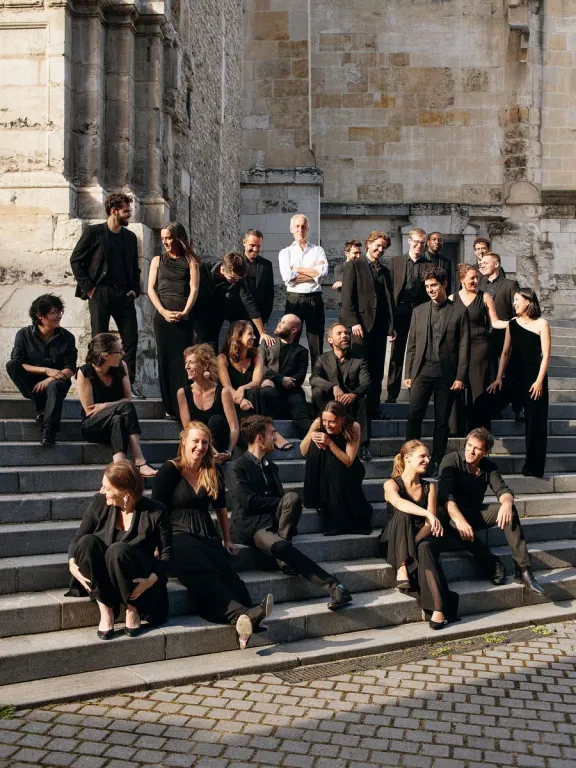Ensemble Correspondances Promoting seventeenth-century music
The desire to introduce lyric art and Baroque music to a wider public is what drove Sébastien Daucé to create the Ensemble Correspondances in 2009. Laureate's website
- 2024 • Liliane Bettencourt Choral Singing Prize

Choirmaster, organist and harpsichordist Sébastien Daucé founded and leads Correspondances to promote the lyric art and music of what in France is known as the Grand Siècle.
Passions often lead to an encounter, and so it was with Sébastien Daucé. His love of seventeenth-century music led him to composer Marc-Antoine Charpentier, a musical genius in his eyes, but one whose reputation has been overshadowed by Jean-Baptiste Lully’s omnipresence at the court of Louis XIV. His steadfast commitment prompted him in 2009 to found Correspondances with a very specific aim in mind: to promote seventeenth-century music.
In 15 years, the Caen-based choir has become an international benchmark in the repertoire of seventeenth-century French music by reintroducing forgotten works and staging performances as close as possible to those of the Grand Siècle. Its exploration of music, combined with in-depth research and an ambitious policy, leads to moving results, such as the recreation of the Sacre de Louis XIV and the Ballet Royal de la Nuit, which Mazarin commissioned to entertain the young king and his court after the tumultuous period of the Fronde. Sébsatien Daucé reconstructed the score during four years of intense work.
His unique way of breathing new life into forgotten pieces and paying tribute to famous composers is evident in the 20 or so albums he made with Harmonia Mundi, including Charpentier’s Litanies de la Vierge (2013) and Histoires Sacrées (2019), Henri du Mont’s Grands Motets (2016) and Buxtehude’s Membra Jesu Nostri (2021).
The name Correspondances was borrowed from a poem by Baudelaire, illustrating the desire to forge links with all the arts. In this spirit, the choir aims to diversify its performances. For example, in 2017 the Ballet Royal de la Nuit was staged at the Théâtre de Caen in an unprecedented, grandiose production designed by contemporary choreographer Francesca Lattuada. More recently, in 2023, Charpentier’s David et Jonathas was directed by Jean Bellorini, who revived the original form, in which opera and theatre are intertwined.
With the same desire to promote opera, every summer the group cycles Normandy’s byways bringing seventeenth-century music to local towns and villages. The Foundation wanted to reward this alliance of passion and excellence. That is why, in 2024, the jury of the Liliane Bettencourt Prize for Choral Singing chose the Ensemble Correspondances as the winner.
Worth reading :
The Ensemble Correspondances in brief
Driven by a desire to promote lyric art and Baroque music, organist and harpsichordist Sébastien Daucé founded the Ensemble Correspondances in 2009. In 2024, the Liliane Bettencourt Prize for Choral Singing recognized that commitment.

-
2009 Sébastien Daucé creates the Ensemble Correspondances
-
2013 Correspondences records Marc-Antoine Charpentier’s "Litanies de la Vierge"
-
2017 The group performs "Combattimento" based on works by Monteverdi and other Italian composers at the Aix-en-Provence Festival
-
2024 Laureate of the Liliane Bettencourt Prize for Choral Singing







